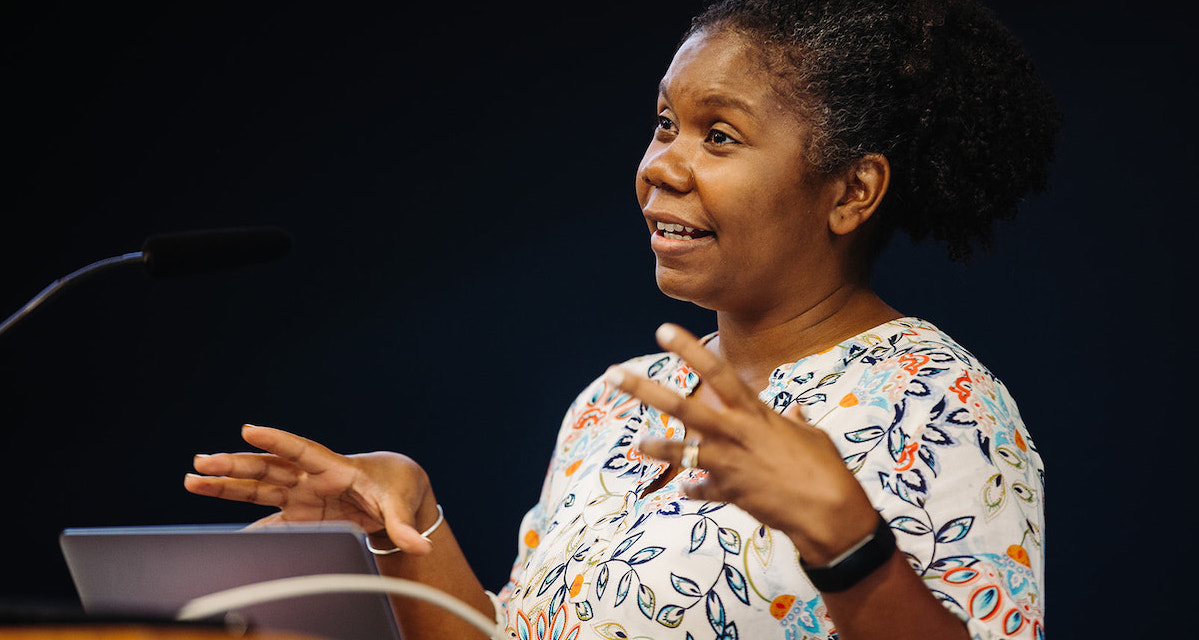Psychologist Shares Five Tips to Help Kids Manage Stress
When Janine Halloran ’00 feels overwhelmed, she lifts her hand near her face and begins outlining her fingers. Starting at her wrist, the licensed mental health counselor inhales deeply while slowly tracing her hand, then begins exhaling when she reaches the top of her thumb and moves downward. Up her pointer finger, she inhales again, exhaling on the descent towards her middle finger.
Deep breathing exercises like the finger-tracing method are just one small part of the “virtual toolbox” Halloran has promoted through Coping Skills for Kids. Founded in 2015, the child and adolescent counselor’s company offers a wide range of coping techniques and resources for young people, from digital services to bestselling books and worksheets.
At Homecoming and Family Weekend, Halloran—Gordon’s Entrepreneur of the Year—gave a talk on her top five coping styles for kids to navigate big feelings and pandemic stress:
1. Relaxation. Whether it’s finger tracing, blowing bubbles or closing their eyes and imagining a favorite place, relaxation “gives kids power and agency when they’re having a hard time,” says Halloran.
2. Distraction. Playing is not something Halloran looks down upon: “It’s a natural stress-reliever for kids,” she says. After long days at school—especially with pandemic guidelines in place—toys and word games like “Would You Rather?” and “Two Truths and a Lie” offer healthy distraction.
3. Sensory. Along with taste, touch, smell and sound, body and balance coping skills like spinning, sitting under a weighted blanket or turning upside down are powerful. One of Halloran’s teenage clients finds peace by interacting with a calming jar, filled with sequins, glitter glue and water. “You can watch the glitter settle like you want your mind to settle,” says Halloran.
4. Movement. Big movements like biking and roller-skating offer stress relief to kids, but so do small movements like rolling your shoulders, playing with a fidget toy or giving yourself a hug.
5. Processing. “Name it to tame it” Halloran advises—sometimes, simply expressing anger or frustration is the best way to work through big feelings. Similarly, expressing gratitude is helpful for kids in recognizing what’s meaningful.
To Halloran, success as a parent isn’t necessarily getting kids to apply every single coping skill. Techniques vary by child, environment and feelings, so she says, “what matters is simply finding a strategy they will use—that’s it,” noting it should be a strategy that does not hurt people or property. As kids discover their favorite coping skills, Halloran urges parents to find the techniques that give them joy and energy, too.
As a wife, mom of two and advocate for young people’s mental health, Halloran runs her practice with empathy and personal conviction. “I come to this not only as a professional,” she says, “but as a parent who is trying to figure out what’s going to work, what’s going to help, what makes the most sense right now, and how we can move forward and make good choices for our kids.”
Discover additional resources from Coping Skills for Kids >
By Ellian Chalfant ’22, communication arts
 The Bell
The Bell